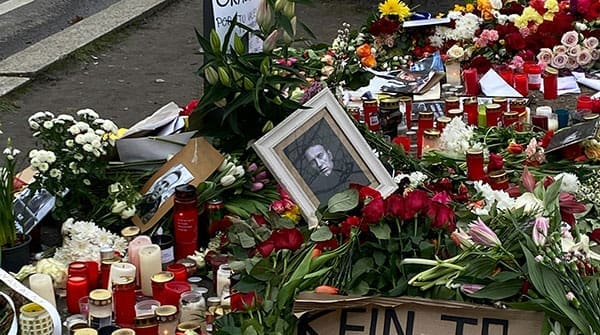His moral fortitude parallels that of Socrates in facing adversity

The death of Alexei Navalny came as a shock to anyone who longs for a post-Putin Russia. But as I said my prayers for the hero Russians needed and who Putin feared, I thought of Socrates, whose example of moral courage 2,500 years before Navalny parallels the Russian dissident’s last days in the Arctic penal colony.
Athens’ rulers condemned Socrates to death for the charge of ‘corrupting’ the city-state’s youths. But to the surprise of his friend Crito (in the Platonic dialogue of the same name), Socrates faces his inevitable execution with stunning equanimity: “I have always thought you happy in the calmness of your temperament; but never did I see the like of the easy, cheerful way in which you bear this calamity.”
Navalny, too, showed moral fortitude at the end. We know this because while we are still unclear how Navalny endured his last days – details such as “cold torture” are alleged by one Russian human rights organization – we do know that he reconciled with the prospect of death under the current Russian regime years ago.
 Photo by Kai Li |
| Related Stories |
| Is Hungary’s Viktor Orban Putin’s poodle?
|
| Why NATO must continue to support Ukraine
|
| Putin is the most dangerous terrorist on the planet
|
Recall that Navalny returned to his home country from Germany in January 2021, having survived a poisoning attempt the year before. (Again, the parallel: Socrates was also a victim of poisoning over 24 centuries ago (in 399 BC), but for Socrates, the dose was fatal.)
The first attempt on Navalny’s life, similar to the successful ones launched against fellow dissidents Boris Nemtsov and Anna Politkovskaya, reeks of cowardice and subterfuge. But by boarding the plane back to Moscow, Navalny chose to accept potential martyrdom.
Back in the Athenian prison more than two millennia ago, Crito urged his condemned friend to escape – “Let me entreat you once more to take my advice and escape,” he says. “For if you die, I shall not only lose a friend who can never be replaced, but there is another evil: people who do not know you and me will believe that I might have saved you … but that I did not care. Now, can there be a worse disgrace than this?”
Socrates rejected such a plea: “But why, my dear Crito, should we care about the opinion of the many? Good men, and they are the only persons who are worth considering, will think of these things truly as they happened.”
Similarly, if you were with Alexei Navalny in Germany, would you have played the role of Crito and urged him not to fly home?
I certainly would. Navalny suffered evil when he was poisoned, and he was entirely within his rights to stay out of Russia for good. But doing so, he believed, would allow evil to flourish unchallenged.
Natan Sharansky, the great Soviet dissident and Jewish refusenik whose memoir provided Navalny with much-needed inspiration and comfort, once wrote to his friend and comrade: “I was very angered by the question of a certain European correspondent the day after your return to Russia – ‘Why did he return? We all knew that he would be arrested in the airport – does he not understand such simple things?’”
Sharansky’s response to the critic was blunt: “My answer was pretty rude: ‘You’re the one who doesn’t understand something. If you think that [Navalny’s] goal is survival – then you are right. But his true concern is the fate of his people – and he is telling them: ‘I am not afraid and you should not be afraid either.’”
By submitting himself to the Russian state’s torturous punishment, Navalny gained moral and spiritual freedom, knowing that what he did was virtuous. Socrates would have been proud: “Think not of life and children first, and of justice afterwards, but of justice first. … Now you depart in innocence, a sufferer and not a doer of evil; a victim, not of the laws, but of men.”
Despite the evil permeating his death (or should I say assassination?), we have not seen the last of Alexei Navalny. In his life, he exemplified moral courage. In his death, he exemplified unwavering conviction in the fight for a free Russia. Navalny’s name shall be associated with all that is good about the Russian people and all that is rotten and wicked about the current Russian regime.
Chuong Nguyen is a research associate with the Aristotle Foundation for Public Policy and a graduate student in American Studies at the Eötvös Loránd University (ELTE) – Budapest, Hungary.
For interview requests, click here.
The opinions expressed by our columnists and contributors are theirs alone and do not inherently or expressly reflect the views of our publication.
© Troy Media
Troy Media is an editorial content provider to media outlets and its own hosted community news outlets across Canada.

